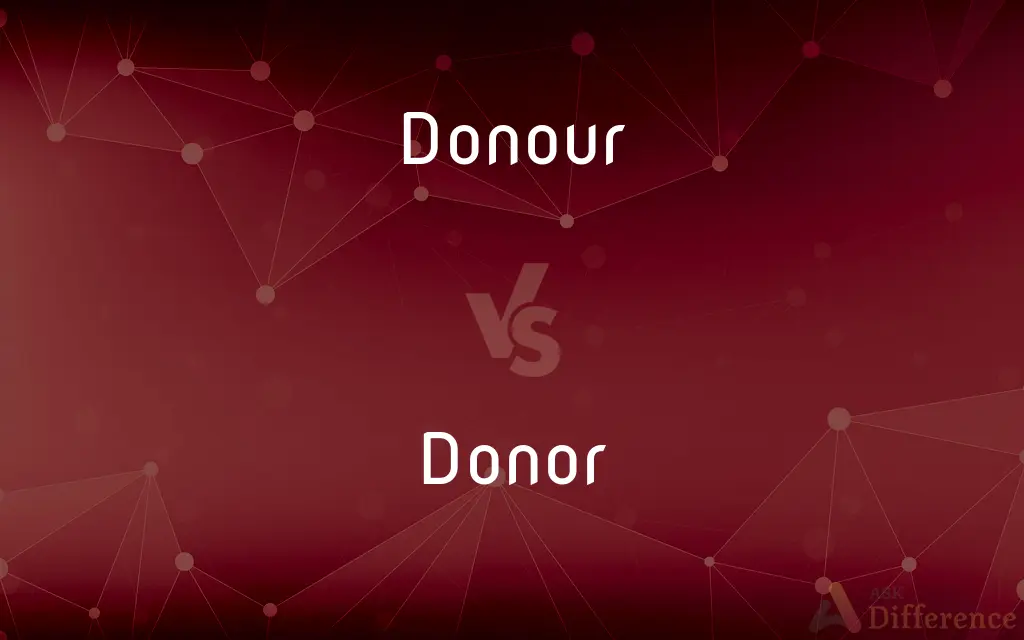Donour vs. Donor — What's the Difference?

Difference Between Donour and Donor
ADVERTISEMENT
Definitions
Donour
Obsolete form of donor
Donor
A donor in general is a person, organization or government which donates something voluntarily. The term is usually used to represent a form of pure altruism, but is sometimes used when the payment for a service is recognized by all parties as representing less than the value of the donation and that the motivation is altruistic.
Donor
A person who donates something, especially money to charity
An anonymous donor has given £25
Loans from rich donor countries
Donor
One that contributes something, such as money, to a cause or fund.
Donor
(Medicine) An individual from whom blood, tissue, or an organ is taken for transfusion, implantation, or transplant.
ADVERTISEMENT
Donor
(Chemistry) An atom, molecule, or ion that provides a part to combine with an acceptor, especially an atom that provides two electrons to form a bond with another atom.
Donor
(Electronics) An element introduced into a semiconductor with a negative valence greater than that of the pure semiconductor.
Donor
(Medicine) Used for transfusion, implantation, or transplant
A donor organ.
Donor
One who makes a donation.
The charity raised $2,000 from various donors.
The hospital is seeking an organ donor.
Donor
(chemistry) A group or molecule that donates either a radical, electrons or a moiety in a chemical reaction. Compare acceptor.
A carbonyl donor molecule
ADVERTISEMENT
Donor
One who gives or bestows; one who confers anything gratuitously; a benefactor. Inverse of recipient.
Donor
One who grants an estate; in later use, one who confers a power; - the opposite of donee.
Touching, the parties unto deeds and charters, we are to consider as well the donors and granters as the donees or grantees.
Donor
Person who makes a gift of property
Donor
(medicine) someone who gives blood or tissue or an organ to be used in another person (the host)

















































